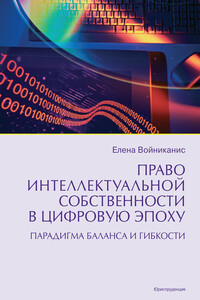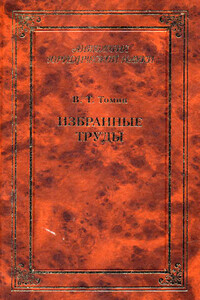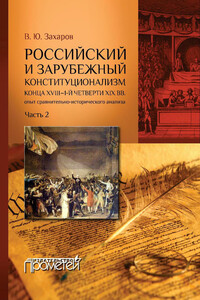53. Lemley M. A. Place and Cyberspace // California Law Review. 2003. Vol. 91.
54. Lemley M. A. Romantic Authorship and the Rhetoric of Property // Texas Law Review. 1997. N 75.
55. Lemley M. A. The Law and Economics of Internet Norms // Chicago-Kent Law Review. 1998. N 73.
56. Lessing L. Innovation, Regulation, and the Internet // American Prospect. 2000. Vol. 11. N 10б.
57. Litman J. Information Privacy/Information Property // Stanford L. Rev. 2000. N 52.
58. Major A. M. Norm Origin and Development in Cyberspace: Models of Cybernorm Evolution // Washington University Law Quaterley. 2000. Vol. 78:59.
59. Patterson D. Fashionable nonsense. // Tex. L. Rev. 2003. N 81.
60. Perritt H. The Internet is Changing the Public International Legal System // KY L. REV. 2000. N 88.
61. Post D. G. The Free Use of our Faculties: Jefferson, Cyberspace, and the Languages of Social Life // Drake Law Review. 2001. N 49.
62. Post D. G. Against "Against Cyberanarchy" // Berkeley Technology Law Journal. Публикация ожидается. В электронном виде на момент сдачи в печать настоящей работы текст был доступен в Сетевой библиотеке исследований в области общественных наук (SSRN) по адресу: http://papers.ssrn.com/sol3/delivery.cfm/SSRN_ID334581_code021019500.pdf? abstractid=334581.
63. Post D. G., Eisen M. B. How Long is the Coastline of the Law? Thoughts on the Fractal Nature of Legal Systems // Journal of Legal Studies. 2000. N 29.
64. Post D. G., Johnson D.R. (1999), "Chaos Prevailing on Every Continent": Towards a New Theory of Decentralized Decision-Making in Complex Systems // Chicago-Kent Law Review. 1998. N 73.
65. Samuelson P. Digital Rights Management (and, or, vs.) the Law // Communications of the ACM. 2003. Vol. 46. N 4.
66. Solum L. B. The Layers Principle: Internet Architecture and the Law // University of San Diego. 2003. В электронном виде на момент сдачи в печать настоящей работы текст был доступен в Сетевой библиотеке исследований в области общественных наук (SSRN) по адресу: http://papers.ssrn.com/sol3/papers.cfm?abstract_id=416263.
67. Teubner G. Das Recht hybrider Netzwerke // Zeitschrift fьr das gesamte Handels-und Wirtschaftsrecht. 2001. S. 550–575.
68. Teubner G. Der Umgang mit Rechtsparadoxien: Derrida, Luhmann, Wiethцlter // Christian Joerges und Gunther Teubner (Hg.) Rechtsverfassungsrecht: Recht-Fertigungen zwischen Sozialtheorie und Privatrechtsdogmatik. Nomos, Baden-Baden, 2003. Публикация ожидается. В электронном виде текст доступен по адресу:
69. Teubner G. Globale Zivilverfassungen: Alternativen zur staatszentrierten Verfassungstheorie. // Zeitschrift fьr auslдndisches цffentliches Recht und Vцlkerrecht. 2003. N 63. Публикация ожидается. Адрес электронного текста на момент сдачи в печать настоящей работы: http://www.jura.uni-frankfurt.de/teubner/pdf-dateien/Digitalverfassung.pd f.
70. Teubner G. Privatregimes: Neo-Spontanes Recht und duale Sozialverfassungen in der Weltgesellschaft? // Dieter Simon und Manfred Weiss (Hg.) Zur Autonomie des Individuums. Liber Amicorum Spiros Simitis. Nomos, Baden-Baden, 2000. S. 437–453.
71. Underkuffler L. S. The Idea of Property: Its Meaning and Power. Clarendon, Oxford University Press. 2003.
72. Zittrain J. Balancing Control and Anarchy on the Internet // The Chronicle of Higher Education. October 13, 2000.
73. Zittrain J. Internet Points of Control // Boston College Law Review. 2003. N 43.
74. Zittrain J. The Copyright Cage // Legal Affairs. July/August 2003.




